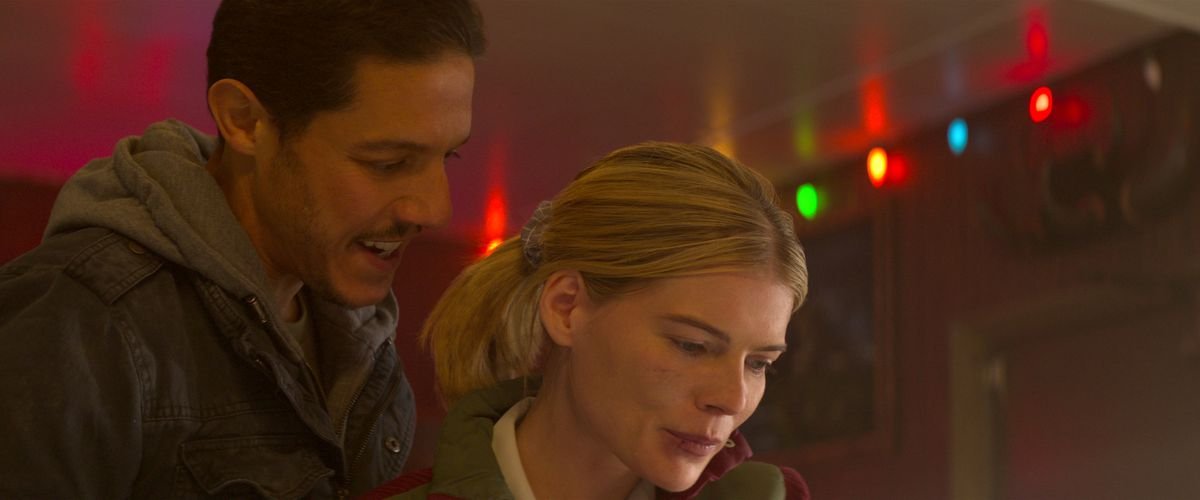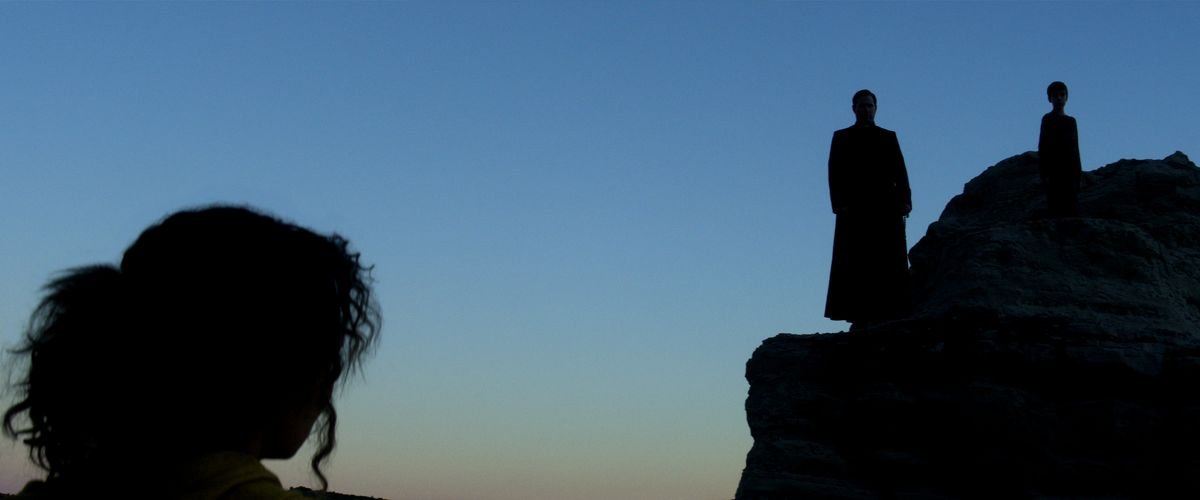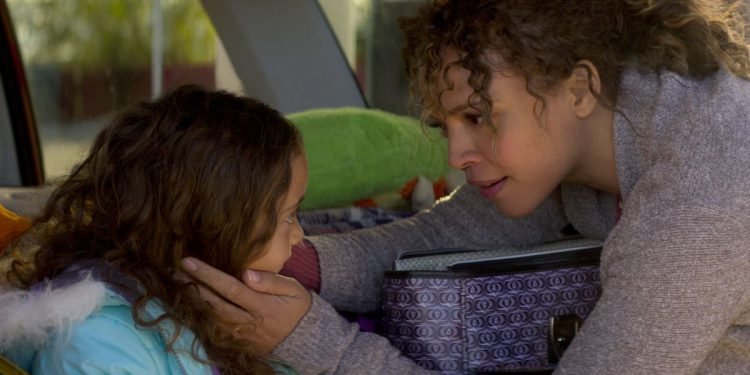The two questions at the center of Rattlesnake are bound to be familiar. First: How far would you go to save a loved one? Second: How do you decide who deserves to die?
Directed by Zak Hilditch, who also directed the excellent Stephen King adaptation 1922, Rattlesnake feels like the movie adaptation of a knock-off King short story. When Katrina’s (Carmen Ejogo) daughter Clara (Apollonia Pratt) is bitten by a rattlesnake, she’s stranded in the desert, far from the nearest hospital. The only structure for miles is a dilapidated trailer, where a mysterious woman heals the young girl. Unsurprisingly, it’s not a favor that comes without a cost.
The terms are classic: a soul for a soul. In exchange for Clara’s life, Katrina must take someone else’s. The catch is she only has until sundown.
While the exact events of Rattlesnake might have made for a good short story or hour-long episode of TV, they wear thin when stretched out to feature length — even when said feature runs just under an hour and a half. The script, also written by Hilditch, only addresses the moral conundrum Katrina is facing at a surface level. Katrina gets something of an escape hatch rather than having to truly reckon with the idea that she must either kill without compunction or play God by taking the Little Shop of Horrors route, introducing a character who’s so immediately loathsome that he might as well have a target painted on his forehead. That turn, however, sucks the tension out of the scenes in which Katrina is seen trying to make a decision. Worse still, the option of a (relatively) easy way out makes it all the clearer that there’s dead air where character development ought to be.

Again, in a shorter form, maybe these flaws wouldn’t be so obvious. Horror short stories can be told effectively with just a name rather than a solid character so long as the spooks are strong. Longer forms demand a little more. Everything that can be said about Katrina falls into the former category. All we know about her are statements of fact — that she’s a single mother, that she has to kill someone — rather than any emotional depth. It makes her boring to watch despite the fact that Ejogo, as always, is a compelling performer, particularly as Katrina struggles with the idea of taking a life. She’s working with very little, though, as Katrina’s journey is a strictly literal one, further undercut by the fact that we already have a pretty good idea of where her path is heading.
The other characters also fall flat, in part because most of them are there as potential victims — that is to say, props. The most interesting characters are specters who occasionally appear to remind Katrina of the debt she owes, all of whom — as Katrina discovers via Google search — are people who have been murdered under mysterious circumstances, presumably by others formerly in Katrina’s shoes. They sport bruises and wounds that indicate how they were killed, some of which manifest more gorily than others.

The film’s visuals don’t get much more inventive than that, as they largely follow a beige color palette and are just as pedestrian as Katrina’s sense of character. Every thread of tension in the movie relies upon its plot, which gets a little more gripping as the film winds to its conclusion by layering on twists. The problem is that there’s so little supporting groundwork that, upon any closer inspection, the film begins to fall apart.
The ironic thing is that this makes Rattlesnake a perfect movie in terms of choosing something low-stakes and low-investment to watch while doing chores. The plot is easy enough to follow that there’s nothing you could miss that would really throw off your understanding of it, and perfectly capable of holding an hour-and-a-half’s half-interest. Then, like the laundry you’ve been folding or the dishes you’ve been washing, it’ll go back on the shelf, soon to be forgotten.
Rattlesnake is streaming on Netflix now.















































